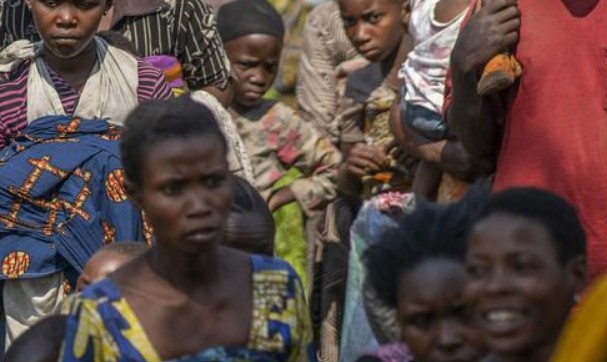DRC: Human Rights at the Heart of an Endless War in the East

The Rwandan-backed M23 controls Goma and Bukavu, while other armed groups continue to operate in Ituri, worsening the humanitarian crisis in the Democratic Republic of Congo (DRC). The Washington and Doha agreements remain ineffective in the face of repeated ceasefire violations and ongoing illegal resource exploitation. The African Union has merged its mediation processes under the leadership of Faure Gnassingbé, but UN Special Envoy Xia Huang emphasizes that peace depends above all on the political will of the parties and on direct and effective dialogue.
As fighting intensifies in eastern DRC, calls for peace are failing to translate into concrete action. Although a ceasefire has been agreed upon, it is not being respected. On the ground, violence continues, fueled by deep-seated mistrust between the parties and the lack of a credible mechanism to monitor compliance with the agreements.
The March 23 Movement (M23), born out of a mutiny by former rebels integrated into the Congolese army, has become one of the main actors in the conflict. According to several UN reports, the group receives military and logistical support from Rwanda—a claim Kigali denies. In early 2025, the M23 launched a major offensive in North and South Kivu, capturing Goma and briefly occupying parts of Bukavu, significantly heightening regional tensions. This escalation displaced hundreds of thousands of civilians and deepened an already severe humanitarian crisis: in overcrowded camps, populations face food shortages, disease outbreaks, and sexual violence, while the provinces of North Kivu, South Kivu, and Ituri remain ravaged by clashes between armed groups, local militias, and government forces.
Fragmented Diplomacy and Double Talk
In response to the crisis, two diplomatic frameworks have emerged, but both are struggling to yield tangible results. The Washington Agreement, signed on June 27, 2025, under U.S. mediation between the DRC and Rwanda, provides for mechanisms of disarmament, respect for territorial integrity, de-escalation of hostilities, a gradual withdrawal of foreign troops, and the creation of a joint security mechanism. However, the M23 is not a signatory, which limits the agreement’s impact.
On the other hand, the Doha Process, led by Qatar, culminated in a declaration of principles signed on July 19, 2025, between the DRC and the M23. It commits both parties to a permanent ceasefire, international oversight, and negotiations toward a comprehensive peace deal. However, implementation remains uncertain: ceasefire violations are increasing, and confidence-building measures have not been enacted within the agreed timeframe.
This two-tiered diplomacy, where parallel processes fail to reinforce one another, highlights the gap between diplomatic rhetoric and realities on the ground. Lasting peace can only emerge through inclusive, sincere, and coordinated dialogue involving all stakeholders.
Human Rights: Collateral Victims of a Forgotten Conflict
Beyond the military toll, the conflict is above all a human tragedy. Hundreds—if not thousands—of civilians have been killed, villages destroyed, and women subjected to sexual violence in an ongoing climate of impunity. Humanitarian organizations report serious human rights violations committed by the M23, the Congolese Armed Forces (FARDC), and other armed groups. There are also documented cases of child recruitment, reflecting the moral collapse driving the conflict.
The illegal exploitation of natural resources—particularly coltan in Rubaya, as well as gold and cobalt—continues to fund the war economy. Revenues from trafficking and informal taxation are used to finance militias and cross-border networks, further prolonging the suffering of local populations.
A Still Shaky Peace Architecture
In response to the persistent crisis, the African Union (AU) agreed at its February 2025 summit to merge its competing mediation frameworks: the Nairobi Process (focused on dialogue with armed groups) and the Luanda Process (centered on bilateral de-escalation between the DRC and Rwanda). This unified structure is now led by Togolese President Faure Gnassingbé, appointed as the AU’s sole mediator. His mandate is to facilitate inclusive political dialogue and oversee the implementation of ceasefire agreements.
While this streamlining is meant to end diplomatic fragmentation, its effectiveness remains to be proven. The absence of a robust monitoring mechanism and a binding sanctions framework raises doubts about its capacity to deliver a sustainable solution. Without enforcement, these efforts risk becoming symbolic gestures in the face of complex on-the-ground dynamics and divergent regional interests.
Between a War of Position and an Economic War
The conflict in eastern Congo revolves around security and economic control. From a technical perspective, the persistence of violence is driven by the fragmentation of armed actors, the institutional weakness of the Congolese state, and regional competition for strategic resources. The militarization of mining areas prevents sustainable stabilization, while the multiplicity of mediation efforts weakens diplomatic coherence.
Unless natural resource governance is fully integrated into peace negotiations, no lasting solution can be achieved.
ADH recommendations aimed at contributing to the end of the crisis:
To contribute to resolving the crisis, the NGO has formulated the following recommendations:
1. Implement a verifiable ceasefire under joint supervision by the UN, the African Union (AU), and the International Conference on the Great Lakes Region (ICGLR).
2. Include the M23 and other armed groups in a Disarmament, Demobilization, and Reintegration (DDR) process, overseen by independent observers.
3. Combat the illegal exploitation of natural resources by introducing mandatory regional traceability mechanisms for gold, coltan, and cobalt.
4. Support transitional justice and the documentation of war crimes to ensure that human rights violations do not go unpunished.
5. Promote the return of state authority by gradually redeploying civilian institutions—including justice, health, and education—in liberated areas.

